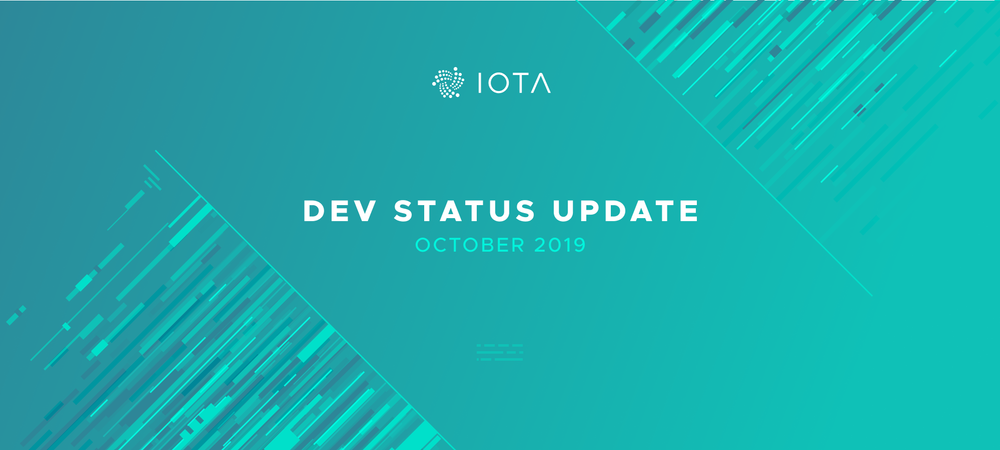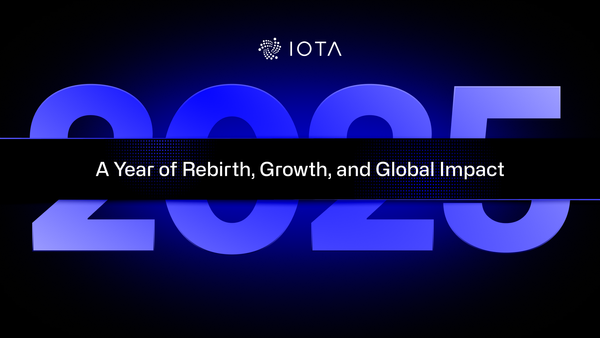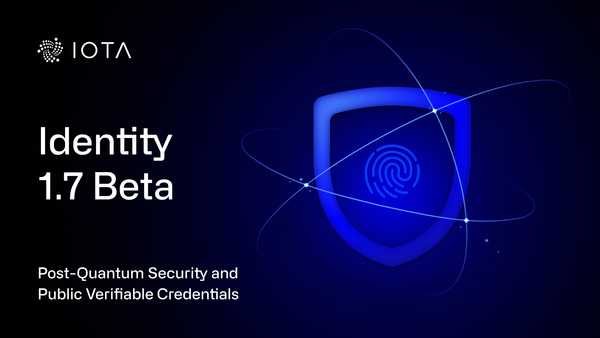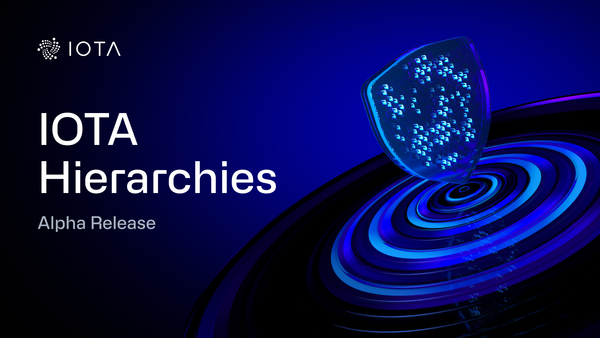Dev Status Update — October 2019
Published by the IOTA Dev Team Every Month, This Update Provides News About our Key Projects
Please click here if you want to see the last status update.
Bee will be using Request for Comments (RFC), an approach devised by the Rust project, going forward to improve transparency and consistency in development. To read more about what an RFC is, check out this explanation. We will be publishing an update on the RFC process and its use in our engineering projects in the near future.
The team is in the process of creating and reviewing RFCs for core functionality. The RFCs will tie in the pieces for the project architecture and core modules of the new node software.
One of the RFCs currently in progress is the Transaction & Bundle RFC. The implementation of this core functionality will follow the merging of the RFC.
The work to have the specifications for the Coordicide-related modules is in progress and will follow the completion of the core modules. This is in line with the plan laid out in our Coordicide R&D blog post.
You can always see what the Bee team is up to in the open Discordchannels where the day-to-day team communication happens. See the bee-dev,bee-discussion, and bee-rfcschannels. You can find the meeting minutes for both RFC discussions and development meetings in the meeting minutes repository.
One of the major bottlenecks in IRI is still the tip selection algorithm. We have released a new version of IRI 1.8.2, that contains simplifications to the tip selection algorithm. We have tested the changes against the previous version of IRI on the IOTA community committee (ICC) network, and we have seen the following improvements:
- Zero value transactions: the node is able to process 140% more transactions per second (TPS)
- Value transactions: the node is able to process 135% more transactions per second (TPS)
Next up are further improvements to the tip selection algorithm and overall performance of the node. We also have a more user-friendly and safe solution for handling spent addresses almost ready to be released. In parallel to the functionality improvements, we want to spend more time on automating many of the spam tests that we are performing on release candidates of IRI. This will allow us to make new releases faster and spend less time on manual tests.
The FPGA team is making progress on putting the supervisor core on the FPGA. This will allow us to run the first full incarnation of the QCM on an FPGA.
We are also in the process of preparing the documentation that will serve as a base for the configuration of Abra on FPGAs.
A draft of a specification for the assembly protocol is currently being reviewed.
We recently released cIRI v0.1.0 alpha and are eager to hear your feedback. This release brings cIRI to feature parity with the original version in Java. You can find the alpha release on GitHub.
A meetup hosted by the Taiwan community will take place on October 26. Sam Chen will be going through three IoT projects using CClient on ESP32. If you missed Sam’s previous post on the IOTA ESP32 wallet, be sure to check it out!
The Trinity team has been hard at work in releasing v1.1.0 for both desktop and mobile. This update includes feature enhancements that missed the deadline for v1.0.0. Users can select their own node for Proof of Work, and the wallet now supports HTTP Basic Auth for advanced users and developers. We also have an improved dark theme courtesy of our community member Matthew Scheuerman, thanks!
Attention has now shifted to v1.2.0. Users will be excited to learn that v.1.2.0 will bring a significant boost to Proof of Work performance, as well as a tool for recovering funds locked on spent addresses.
Meanwhile, the team held a design sprint for brainstorming more ideas surrounding Trinity v2 and, in particular, decentralized identity. The design sprint helped the team to align on the vision for v2 and really narrow down what decentralized identity might look like in Trinity. We look forward to sharing more ideas with you soon!
We are now in the process of creating a specification and a validation prototype for a new and improved version of MAM. This version of MAM will simplify working with messages, make their content polymorphic, and much more to be capable of meeting different business scenarios. We will share the specification once the first draft has been finalized.
The Python client library is making steady progress on being brought up to speed with the other libraries. Check out the repository to see the latest changes.
As you may already know, last month we released our permanode solution, called Chronicle. Check out the blog post for full details.
The initial efforts for porting Chronicle to Rust are now well underway.
As always, feel free to stop by on Discord— every project mentioned here has a channel (or more) for discussion with the devs!
Follow us on our official channels for the latest updates
Discord | Twitter | LinkedIn | Instagram | YouTube




